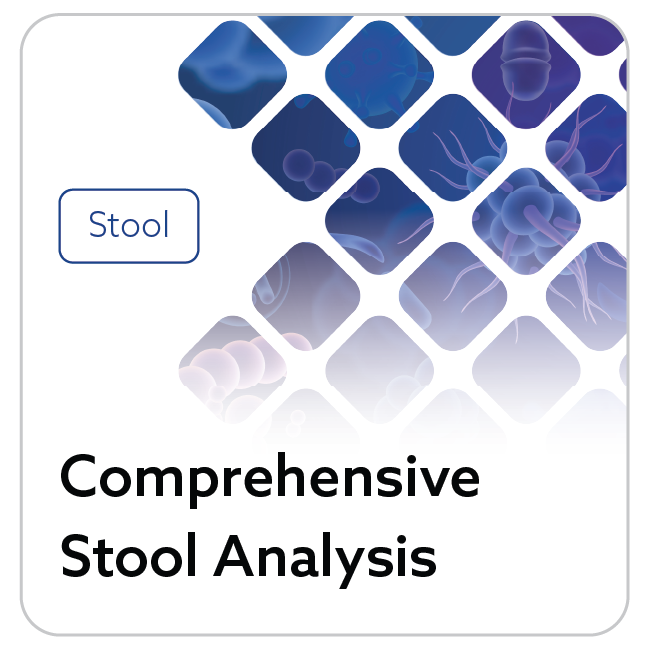Comprehensive Stool Analysis with Parasitology
Comprehensive Stool Analysis with Parasitology
Couldn't load pickup availability
The Key to Optimal Health
The Comprehensive Stool Analysis with Parasitology assess gut health, identifying the cause of common GI complaints. Both local GI and systemic health issues may begin as an imbalance in GI function. Stool testing helps determine GI imbalances and supports identification of targeted treatments.
What Patients Might Benefit From Comprehensive Stool Analysis
The Comprehensive Stool Analysis is indicated for all chronic GI problems, for acute bowel pattern changes, and for many systemic diseases.
- IBS
- IBD
- Celiac disease
- Autoimmune disorders
- Immune system imbalances
- Cardiovascular disease
- Neurological disorders
- Mood Disorders
- Diarrhea, Constipation, Abdominal Distension
- Malnutrition
- Leaky Gut
- Allergies
- Weight Concerns
- Diabetes
Details
The Comprehensive Stool Analysis evaluates digestion, absorption, intestinal function, and the microbial flora. The analysis uncovers the fundamental causes of many acute and chronic symptoms, enabling the clinician to tailor treatments.
The markers on the Comprehensive Stool Analysis are grouped into the following clinically important groups:
- GI Pathogen Profile, Multiplex PCR; stool
- Parasitology; Microscopy
- Stool Chemistries
- Bacterial Susceptibilities to Natural Antibacterials & Prescriptive Agent
What does the Test Measure?
- Digestion and absorption of nutrients (Pancreatic Elastase, Muscle Fibers, and Vegetable Fibers)
- Elimination efficiency of undigested food residues and toxins
- Assessment of the gut microbiome, measuring levels of healthy bacterial flora versus potentially pathogenic bacteria species, yeast, and parasites
- Culture and sensitivities of pathogenic yeast and bacteria
- Infectious pathogens (EIA evaluation for Campylobacter, Enterohemorrhagic E. coli cytotoxin, Giardia lamblia, and Cryptosporidium)
- Indices and markers of intestinal immune function (Secretory IgA)
- Indices and markers of inflammation (Calprotectin, Lactoferrin, and Lysozyme)
- Indices and markers of intestinal physiology and of intestinal health (Presence of RBC, WBC, Mucus, Occult Blood, Fecal pH, and Short Chain Fatty Acids)
Evidence suggests that both local and systemic health issues may begin as imbalances in Gastrointestinal function. The role the gut microbiome plays is vital in supporting our overall health.
Specimen Requirement
Stool
Please see collection instructions for detailed instructions.






